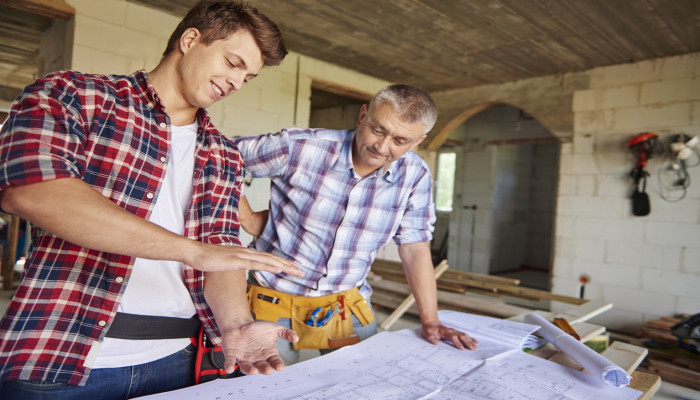 Launch apps instantly. Claim $200 credits on DigitalOcean
Launch apps instantly. Claim $200 credits on DigitalOcean
What Are the Responsibilities of a Home Inspector?
Written by Freya Parker » Updated on: March 28th, 2024

Introduction
Hello, dear readers! Today, we're diving into the world of home inspectors and their crucial role in the home-buying process. As someone who has been through the rollercoaster ride of purchasing a property, I can't emphasize enough the importance of having a skilled and knowledgeable inspector by your side.
The Gatekeeper of Home Purchases
Imagine you're about to make one of the biggest investments of your life – buying a house. You've fallen in love with the charming exterior, the spacious rooms, and the inviting backyard. But before you sign on the dotted line, a home inspector enters the scene, armed with a keen eye and a wealth of experience.
Their job? To thoroughly examine every nook and cranny of the property, from the foundation to the roof, and everything in between. Think of them as the gatekeepers, ensuring that you're making an informed decision and not walking into a potential minefield of hidden defects.
The Meticulous Examination
A home inspector's responsibilities are vast and varied, but at the core, they are tasked with conducting a comprehensive evaluation of the property's condition. This includes a thorough inspection of the following:
1. Structural Integrity
The foundation, walls, floors, and roof are the backbone of any home. A home inspector will assess these elements for any cracks, settling, or other signs of structural issues that could compromise the safety and longevity of the property.
2. Electrical Systems
From the main panel to the outlets and switches, the electrical system is a critical component that requires close scrutiny. A home inspector will check for any potential hazards, such as outdated wiring or overloaded circuits, ensuring that the system meets current safety standards.
3. Plumbing and HVAC
The plumbing and heating, ventilation, and air conditioning (HVAC) systems play a vital role in the comfort and functionality of a home. A home inspector will examine these systems for leaks, proper ventilation, and overall efficiency, helping you avoid costly repairs or replacements down the line.
4. Insulation and Energy Efficiency
In today's environmentally conscious world, energy efficiency is a key consideration for homeowners. A home inspector will evaluate the insulation levels, window sealing, and overall energy efficiency of the property, providing valuable insights into potential cost savings and environmental impact.
5. Exterior and Interior Components
From the roof and siding to the doors, windows, and appliances, every aspect of the home's interior and exterior will be meticulously inspected. This includes checking for water damage, rot, and any other signs of wear and tear that could impact the property's value and livability.
The Importance of Findings and Implications
After the inspection, the home inspector will provide you with a comprehensive report detailing their findings. This report serves as a valuable tool for negotiating repairs or adjustments to the purchase price, should any significant issues arise.
It's important to understand that not all findings are deal-breakers. Some issues may be minor and easily fixable, while others could be more substantial and require careful consideration. Skilled home inspectors in MD will not only identify the problems but also provide insights into their potential implications and recommendations for addressing them.
For example, if the inspector discovers a leaky roof, they might suggest hiring a reputable roofing contractor for repairs or replacement, depending on the severity of the issue. On the other hand, if they uncover a faulty electrical system, they might recommend involving a licensed electrician to ensure the safety of the home and its occupants.
The Value of Professional Expertise
Hiring a home inspector is an investment in itself, but one that can save you from costly surprises and headaches down the road. These professionals bring years of experience and specialized training to the table, allowing them to spot issues that may be overlooked by an untrained eye.
Furthermore, a reputable home inspector operates with objectivity and impartiality, providing an unbiased assessment of the property's condition. They have no vested interest in the sale and are focused solely on delivering accurate and comprehensive information to their clients.
Conclusion
As you embark on the exciting journey of homeownership, remember that a home inspector is your trusted ally. Their diligence, expertise, and attention to detail can mean the difference between a smooth transition and a potential nightmare. By understanding their responsibilities and the implications of their findings, you'll be better equipped to make an informed decision and ensure that your dream home is truly a sound investment.
So, when you're ready to take the plunge, don't hesitate to enlist the services of a qualified home inspector. Their watchful eye and comprehensive report could be the key to unlocking a lifetime of homeownership bliss.
Copyright © 2024 IndiBlogHub.com Hosted on Digital Ocean









Post a Comment
To leave a comment, please Login or Register